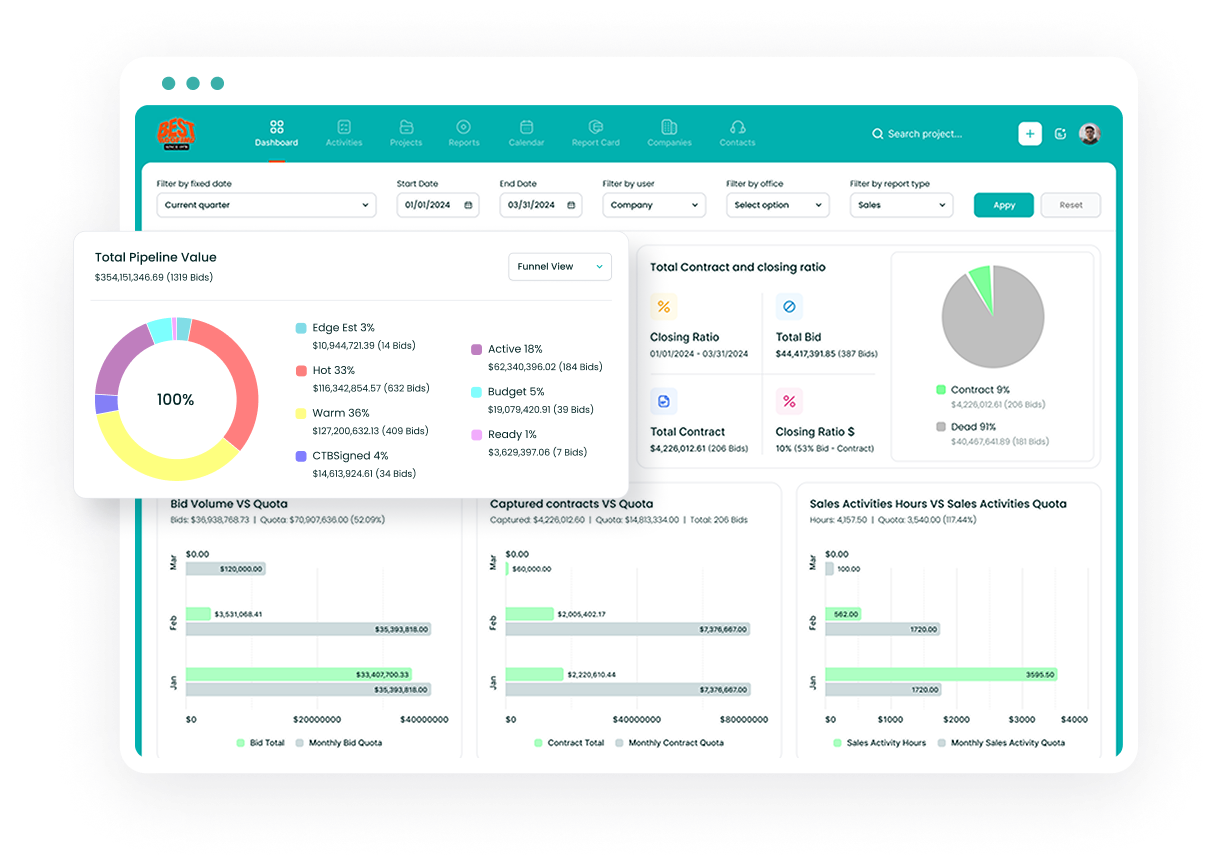Core Architecture and Deployment
Oracle E-Business Suite and Sage 100 ERP represent two distinct approaches to enterprise resource planning. Oracle E-Business Suite offers a comprehensive, integrated suite of applications designed for large enterprises, while Sage 100 ERP caters primarily to small and medium-sized businesses with a more streamlined approach.
Cloud Capabilities Oracle E-Business Suite provides robust cloud deployment options with extensive customization capabilities. In contrast, Sage 100 offers a more straightforward cloud-based system that allows users to access it from anywhere using web browsers, mobile devices, desktops, or tablets.
Feature Comparison
Financial Management
Both systems offer strong financial management capabilities, but with different focuses:
Oracle E-Business Suite
- Advanced multi-currency handling
- Complex consolidation capabilities
- Sophisticated tax management
- Global compliance features
Sage 100
- Core accounting and finance modules
- Integrated payroll management
- E-commerce capabilities
- Streamlined inventory control
User Interface and Experience
Sage 100 has gained recognition for its user-friendly interface and intuitive navigation. The system provides a more straightforward user experience, making it particularly suitable for organizations without extensive IT resources. Oracle E-Business Suite, while more complex, offers deeper functionality and customization options for organizations with sophisticated requirements.
Implementation and Scalability
Oracle E-Business Suite
The implementation process for Oracle E-Business Suite typically requires significant resources and expertise. However, it offers superior scalability for growing enterprises and can handle complex business processes across multiple subsidiaries and international operations.
Sage 100
Sage 100's implementation process is generally more straightforward and less resource-intensive. The system is designed to scale with small to medium-sized businesses, offering a balance between functionality and ease of use.
Integration Capabilities
Oracle E-Business Suite
- Extensive API library
- Advanced IoT integration frameworks
- Complex system interconnectivity
- Enterprise-grade middleware options
Sage 100
- Standard third-party integrations
- Basic API connectivity
- Seamless integration with other Sage products
- Focus on essential business applications
Cost Considerations
Sage 100 Pricing Structure
Sage 100 offers a more predictable and typically lower cost structure, making it attractive for smaller organizations. The system provides various modules that can be purchased separately, allowing businesses to pay only for what they need.
Oracle E-Business Suite Investment
Oracle E-Business Suite represents a significant investment, with costs typically higher than Sage 100. However, this investment often translates to more comprehensive functionality and enterprise-grade capabilities.
Industry-Specific Considerations
Manufacturing and Distribution
Sage 100 excels in manufacturing and distribution for small to medium-sized businesses, offering specialized features like:
- Material Requirements Planning
- Assembly management
- Warehouse control
- Inventory optimization
Oracle E-Business Suite provides more sophisticated manufacturing capabilities, including:
- Advanced supply chain management
- Complex production scheduling
- Global inventory management
- Detailed cost accounting
Reporting and Analytics
Oracle E-Business Suite Analytics
- Advanced business intelligence tools
- Custom report builders
- Real-time analytics dashboards
- Predictive analytics capabilities
Sage 100 Reporting
- Standard financial reports
- Basic business intelligence
- Customizable dashboards
- Essential KPI tracking
Security and Compliance
Both systems prioritize security but approach it differently:
Oracle E-Business Suite
- Enterprise-grade security protocols
- Advanced user authentication
- Comprehensive audit trails
- Global compliance frameworks
Sage 100
- Standard security features
- Role-based access control
- Basic audit capabilities
- Industry-specific compliance tools
Mobile Accessibility
Sage 100 Mobile Features
Sage 100 offers straightforward mobile access through web browsers and mobile applications, making it convenient for small business owners and their teams to access critical information on the go.
Oracle E-Business Suite Mobile Capabilities
Oracle provides sophisticated mobile solutions with advanced features for complex business processes, though these may require additional configuration and setup.
Customer Support and Community
Sage 100 Support Structure
- Dedicated support teams
- Active user community
- Regular training sessions
- Comprehensive documentation
Oracle Support Ecosystem
- Global support network
- Extensive partner ecosystem
- Advanced technical resources
- Certified consultant network
Future-Proofing Your Business
Technology Roadmap
Oracle E-Business Suite
- Continuous innovation focus
- Regular feature updates
- Advanced technology integration
- Long-term development commitment
Sage 100
- Steady improvement cycle
- Focus on core functionality
- Regular security updates
- Small business-oriented features
Making the Right Choice
Choose Oracle E-Business Suite If:
- Your organization has complex, enterprise-level requirements
- You need advanced customization capabilities
- Global operations are a key consideration
- You have the resources for a significant IT investment
Choose Sage 100 If:
- You're a small to medium-sized business
- You need straightforward, effective ERP functionality
- Cost-effectiveness is a priority
- You prefer a user-friendly interface
Conclusion
The choice between Oracle E-Business Suite and Sage 100 ERP ultimately depends on your organization's specific needs, resources, and growth trajectory. Oracle E-Business Suite offers comprehensive enterprise-grade functionality with advanced features and scalability, making it ideal for larger organizations with complex requirements. Sage 100, on the other hand, provides a more accessible, cost-effective solution that's well-suited for small to medium-sized businesses seeking essential ERP functionality without overwhelming complexity.
Consider your organization's size, industry, budget, and future growth plans when making this crucial decision. Remember that the right ERP system should not only meet your current needs but also support your business's evolution and growth in the years to come.
Citations: [1] https://www.intelegain.com/top-15-erp-systems-for-small-businesses/ [2] https://www.trustradius.com/compare-products/oracle-e-business-suite-vs-sage-100 [3] https://www.g2.com/compare/oracle-e-business-suite-vs-sage-100cloud [4] https://slashdot.org/software/comparison/Oracle-E-Business-Suite-vs-Sage-100-vs-Sage-Intacct/ [5] https://www.itqlick.com/compare/sage-erp-x3/oracle-e-business-suite [6] https://sourceforge.net/software/compare/Oracle-E-Business-Suite-vs-SAP-ERP-vs-Sage-100/ [7] https://www3.technologyevaluation.com/selection-tools/comparison-reports/22085/oracle-e-business-suite-vs-sage-business-cloud-enterprise-management-erp-comparison-r [8] https://www.softwarereviews.com/categories/accounting-enterprise/compare/oracle-oracle-e-business-suite-vs-sage-intacct

